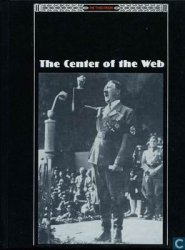The Code of Chivalry: Putting Honor before Plunder
The Hundred Years' War between England and France pitted these two countries' warrior aristocracies against one another. Yet these knights had a great deal in common: they all spoke French, many were closely related, and they were supposed to share a common set of values. The following excerpt is taken from The Book of Chivalry written in French by Geoffroi de Charny, a French nobleman and veteran of this war's first major battles who ultimately died in combat at Poitiers in 1356. Because the war was fought almost entirely on French soil, Geoffroi was keenly aware of the toll it took on the land and its people. In the following passage, he addresses the problem of how a knight can sustain his honor when he is driven to acquire booty for himself through the theft of others' property.
Those Who Are Brave but Too Eager for
Now need to consider yet another category of men-at-arms, who deserve praise, who are strong and skillful, bold and sparing no effort, some of whom always want to be at the forefront, riding as foragers to win booty or prisoners or other profit from the enemies of those on whose side they fight. And they know well how to do it skillfully and cleverly; and because they are so intent on plunder, it often happens that on the entry into a town won by force, those who are so greedy for plunder dash hither and thither and find themselves separated from those of their companions who have no thought for gain but only for completing their military undertaking. And it often happens that such men, those who ride after and hunt for great booty, are killed in the process-frequently it is not
Plunder
Known how, sometimes by their enemies, sometimes through quarrels in which greed for plunder sets one man against another. It often occurs that through lack of those who chase after plunder before the battle is over, that which is thought to be already won can be lost again and lives or reputations as well. It can also happen in relation to such people who are very eager for booty that when there is action on the battlefield, there are a number of men who pay more attention to taking prisoners and other profit, and when they have seized them and other winnings, they are more anxious to safeguard their captives and their booty than to help to bring the battle to a good conclusion. And it may well be that a battle can be lost in this way. And one ought instead to be wary of the booty which results in the loss of honor, life, and possessions. In this vocation one should therefore set one's heart and mind on winning honor, which endures for ever, rather than on winning profit and booty, which one can lose within one single hour. And yet one should praise and value those men-at-arms who are able to make war on, inflict damage on, and win profit from their enemies, for they cannot do it without strenuous effort and great courage. But again I shall repeat: he who does best is most worthy.
Questions for Analysis
1. How does Geoffroi justify the act of plundering? What insights into contemporary military tactics does this passage provide?
2. Given that Geoffroi would have seen Englishmen pillaging French lands, do you find his justification of this activity surprising? Why or why not?
Fell victim to epidemic diseases that affected both animals and people. In southern Europe, around the shores of the Mediterranean, the effects of climate change were more muted, and there were also different channels through which food could be distributed. Nonetheless, the overall health of this region suffered from the disruption of trade and the shortage of some staple goods, as well as from the highly unstable political situation we have already discussed.
As food grew scarcer, prices climbed unpredictably. Plans for future crops, which kept hope alive, would be dashed when spring arrived and flooded fields prevented seeds from germinating. Cold summers and autumns were spent foraging for food. Hunting was restricted to the nobility, but even those who risked the death penalty for poaching found little game. Wages did not keep pace with rising costs, and so those who lived in towns

• Plague-stricken towns and areas - Progress of plague at certain dates
Ra Towns and areas not stricken by the plague
THE PROGRESS OF THE BLACK DEATH, FOURTEENTH CENTURY. ¦ What trajectories did the Black Death follow once it was introduced into Europe? ¦ How might the growth of towns, trade, and travel have contributed to the spread of the Black Death? ¦ Would such a rapid advance have been likely during the early Middle Ages or even in the ancient world?
And depended on markets had less to spend on scarce provisions. Only a year after the famine began, townspeople were dying of ailments that would not have been fatal in good years.
The effects of the famine were especially devastating for children, since even those who survived would be highly susceptible to disease, owing to the severe impairment of their immune systems. It may have been the Great Famine, then, that paved the way for the more transient (if more horrific) destruction of the Black Death.




 World History
World History









